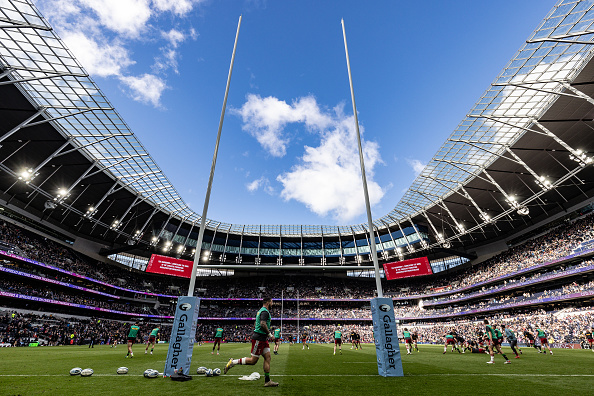English rugby ref body ‘regret’ events that saw Premiership TMO get ‘distracted’ by pundits

English rugby chiefs have described an incident whereby it looked as if a Television Match Official (TMO) was influenced by TNT Sports commentary as “regrettable”.
In the second half of the Premiership match between Saracens and Harlequins, TMO Stuart Terheege was heard stating that his officiating team couldn’t look at a potential foul play incident because TV pundit Austin Healey had raised it on commentary.
The move, which was still deemed as a penalty, was yesterday described as “regrettable” by the Rugby Football Union.
TMO distracted
“TNT Sports’ audio directors can cut to the TMO if there is a moment when viewers would benefit from their insight in their decision-making. At this juncture, some of the conversation between the TMO and Match Director with regards to the replays requested and whether an official review was needed were broadcast ‘live’,” a statement said.
“The conversation between TMO and Director that was broadcast ‘live’ was regrettable, they were not intended to be heard outside of the broadcast truck nor were they the reason for the foul play incident not being formally reviewed.
“Terheege is disappointed that he allowed himself to be distracted with interactions with the broadcast team and did not communicate his decision to the on-field match officials.”
Saracens won the game against their London rivals 52-7.
‘Unusual and unfortunate’
“TMOs do not actively listen or react to the broadcast commentary team. TMOs make their decisions independently, based on their own judgement, experience, and in line with agreed World Rugby protocols,” the statement continued.
“However, due to their location at the matches, they sometimes overhear commentary. The nature of the audio configuration in some broadcast trucks and in some stadiums means the working environment varies from match to match.
“The incident was an unusual and unfortunate occurrence. The PGMOT, Premiership Rugby and TNT Sports are working closely together to make sure this does not happen again. The three organisations enjoy a close and positive working relationship based on a mutually beneficial system that has worked for many years.
“All parties will continue to work hard to further refine and perfect systems to ensure player safety and high-quality rugby.”